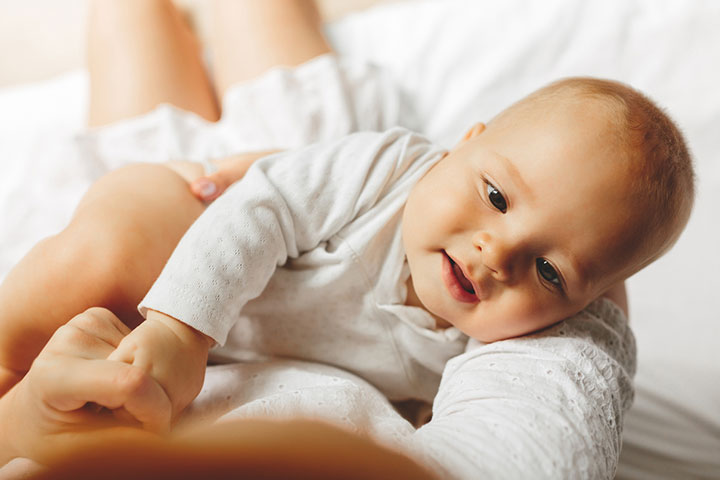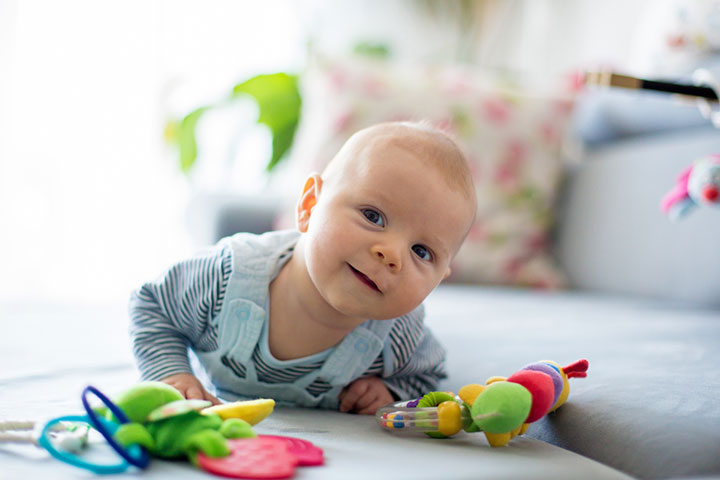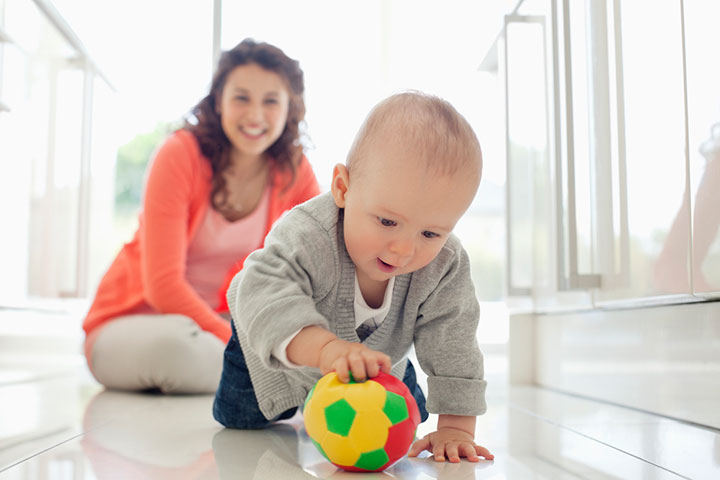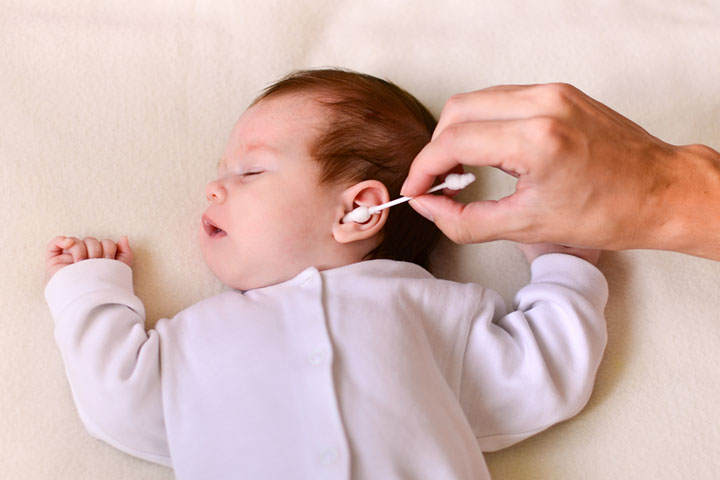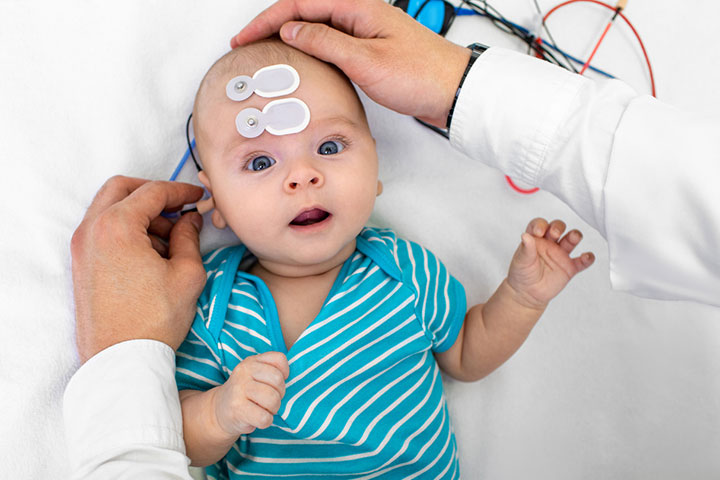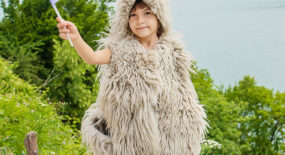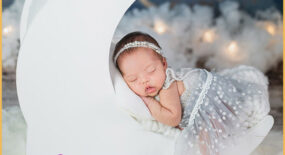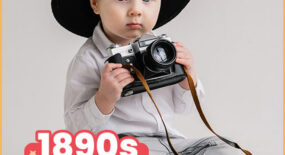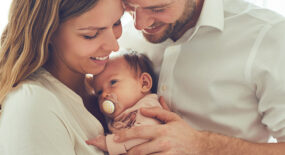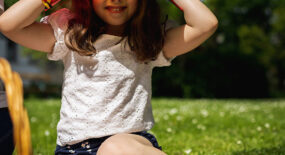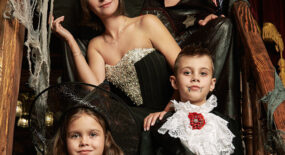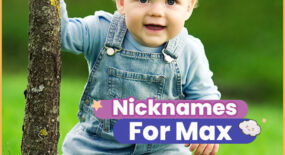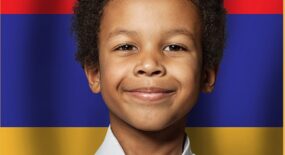Most healthy babies are born with well-developed ears, but they can’t hear properly at birth. So, when do babies start hearing after birth? Well, babies are born with a certain hearing ability that improves over several months to reach a level where the baby can hear clearly and gauge the range of sounds. During this period, babies reach age-related hearing milestones, which parents should watch for to detect any underlying hearing problems. So, read on to know more about the development of a baby’s hearing ability, hearing screening tests, and possible causes of hearing problems in babies.
When Do Babies Start Hearing After Birth?
According to the American Speech-Language-Hearing Association (ASHA), babies begin to react to sounds at the age of three months (1). It is believed that the baby, as a fetus, begins to recognize and react to sounds from as early as the sixth or seventh gestational month (2).
Hearing is a critical sense that helps babies develop their language and communication skills. It is also important for their social and emotional development. The process of hearing begins in the womb, but when does your baby start to hear? The proper development of hearing happens in babies only after they are born.
Newborn Baby Hearing Development
The perception of sound is a complex process that involves the cochlea, a spiral-shaped organ in the inner ear that contains thousands of tiny hair cells. When sound waves enter the ear, they cause the hair cells to vibrate, which sends electrical signals to the brain through neurons. This process allows your baby to hear and interpret different sounds.
Cristina Hartmann, a remarkable blogger, faced the challenge of being born deaf. Even after trying many things for a long time, Cristina couldn’t hear. She says, “I didn’t hear a damn thing until I was six. When my parents discovered my deafness at four months, the audiologist told them that I was the deafest baby she had ever met. I didn’t react to even the loudest sounds, which were noted as no-reaction on my audiogram. The most powerful hearing aids did nothing, so I ended up feeding them to the dog (to my mother’s horror). My cochlea was the equivalent of an auditory black hole: sound just disappeared without as much as a blip registering in my mind.” It was only at the age of 6, with the advent of cochlear implants, that she finally experienced the world of sound (i).
According to the U.S. National Institute on Deafness and Other Communication Disorders (NIDCD), a baby with a healthy hearing sense will achieve the following developmental milestones (3).
From birth to three months
- Startles at loud sounds
- Calms down or smiles on listening to your voice
- Starts or stops sucking while feeding in response to sound
- Makes a different sound for each specific need
From four to six months
- Moves the eyes in the direction of a sound
- Observes the toys that make sound
- Responds to alteration in the tone of your voice
- Begins to pay attention to music
Seven months to one year
- Turns the head and looks in the direction of the sound
- Begins to respond when called by their name
- Identifies words for common things and people like a cup, truck, juice, or daddy
- Starts to respond to simple words like “no,” “come here,” “want more,” etc.
- Listens to songs and stories, but for a short time
Each baby is different, and if a baby misses a milestone by a few weeks, it does not necessarily indicate a problem.
How To Know If Your Baby Is Hearing Clearly?
There are various tests done after a baby’s birth to check their hearing abilities. However, the baby’s hearing abilities can only be gauged as they grow older. If the pediatrician suspects a problem in the baby’s hearing abilities, then they may recommend advanced tests at a later date or a later age.
Note that babies do not react to sounds like that of a telephone or doorbell ringing when they are in a deep sleep because they have a more sound sleep than adults.
When To Worry About Your Newborn’s Hearing?
Babies, when awake, startle to sudden loud bangs or sounds. The following are a few signs that may indicate a hearing problem (4).
- Not being startled by loud sounds
- Not reacting and turning to a sound even after six months of age
- Looking at you only when they see you and not when they hear you
- Seems to be alerted by some sounds but not by others
These issues do not always confirm a hearing problem. Babies might show a temporary diminished hearing during ear infections or an episode of cold and cough. They may also show no reaction when they are engrossed playing with an adult or a sibling. Therefore, do not panic but consult a doctor before arriving at a conclusion.
How To Help A Baby Develop Their Hearing Abilities?
Hearing abilities develop naturally and reach the requisite milestones at a specific age. One can stimulate healthy development through various means.
- Babies tend to recognize and respond to the song or rhyme that they repeatedly hear in the mother’s womb, after birth, too (5). Sing the same rhymes for your baby once the baby is born to help them connect with the song.
- Start reading bedtime stories to them after they grow up a bit. They might not understand, but it will help them build a connection with the words and form a reading habit.
- Play music and clap along with the song. It will encourage the baby to do the same.
- Get toys that have music in them.
- Encourage them to play with rattles.
Factors That May Affect Your Infant’s Hearing
There are various factors that might affect a newborn’s hearing. Here are some of the common reasons (4) (6).
- Hearing issues can be due to genetic predisposition.
- A mother affected by certain viral infections during pregnancy might have babies with hearing problems. Such viral infections include:
- CytomegalovirusiXA common virus that might remain in the body lifelong without causing infection symptoms. infection
- HerpesiXA viral infection causing cold sores categorized as oral herpes and genital herpes.
- MeaslesiXViral respiratory infection causing high fever, sore throat, runny nose, and inflammation of the eyes.
- RubellaiXA contagious viral infection indicated by low fever, sore throat, and rash that starts on the face.
- SyphilisiXA bacterial infection predominantly sexually transmitted or congenitally to the developing fetus causing sores on the genitals and tongue.
- ToxoplasmosisiXA parasitic infection contracted from undercooked food or contact with cat feces.
- Premature birth and low birth weight can also be associated with hearing impairments. .
- Birth defects may cause structural changes in the ears and other internal organs, thus leading to hearing loss.
- Ear infections after birth usually cause temporary hearing loss. Although rare, some severe ear infections might cause damage to nerves or bones of the internal parts of the ear.
- Some other conditions that might cause hearing loss are (7):
- Head injuries
- Low Apgar score (score for newborn after birth)
- Jaundice
- Bacterial or viral meningitisiXInflammation affecting the protective membrane of the brain and spinal cord.
- Prolonged mechanical ventilation
- Antibiotics such as gentamicin, tobramycin, kanamycin, and streptomycin
- Earwax or fluid behind the eardrum
- Objects such as toy, crayons, or food stuck in ear canals
- Being surrounded by machines that make loud sounds
Hearing loss in babies can display the following characteristics.
- It can be unilateral, bilateral, or both.
- Be mild, moderate, severe, or profound in intensity.
- Profound hearing loss is commonly called deafness.
- In some babies, the inability to hear worsens with time.
Screening For Your Baby’s Hearing
The US Centers for Disease Control and Prevention (CDC) and the American Academy of Pediatrics recommend that all babies get screened for hearing loss before they’re one month old (4).
Screening for newborn’s hearing ability is done at every hospital mostly before discharge after birth. According to the CDC, over 98% of newborns in the U.S. receive a newborn hearing screening (8).
One of the following three screening methods may be deployed by your baby’s pediatrician (9):
- Automated auditory brainstem response (AABR) This test evaluates the part of the nerve that carries sound waves to the brain and the brain’s response to those sound waves. In this test, miniature headphones are put into a baby’s ears, and electrodes are attached to the baby’s head. Music is played into the baby’s ears, and the response elicited by the brain is recorded.
- Otoacoustic emissions (OAE) test. A microphone and headphone are attached to a baby’s ear. When the sound is played, the waves echo back through the microphone. If the microphone cannot record any echo, your baby might have hearing loss.
- Brain audiometry evaluation This test evaluates a baby’s response to sound. It evaluates all the parts of a baby’s hearing. A headphone is used to transmit sound to the baby’s ear, and a change in the baby’s behavior is noticed. Babies with full hearing power respond by sucking on a pacifier, being quiet, or by searching for the source of the sound.
If a baby fails to pass the initial test, it does not necessarily mean that the baby has hearing loss. Up to 10 percent of babies in the U.S. fail in their first hearing screen, but very few babies out of them actually have hearing disabilities (9).
Fluid in the baby’s ear, too much background sound, or severe crying can cause the false-negative results of the primary screening test.
In summary, hearing is a critical sense that plays an important role in your baby’s development. Babies can start to hear in the womb, but their hearing is still developing postnatal. Adequate stimulation, genetic factors, and testing can all impact your baby’s hearing development. By providing a nurturing and supportive environment, you can help your baby develop their hearing and language skills.
If you wonder when do babies start hearing after birth, they possess the ability to listen and respond to sounds to a certain extent right after they are born and gradually begin to proceed to more advanced hearing. If your baby displays any signs of hearing problems, such as no response to sounds or responding to only specific sounds, consult your child’s doctor, and they may carry out an appropriate diagnosis. Although uncommon, babies with hearing problems may experience certain discomfort and other issues. So being mindful of the signs can help you take necessary measures and seek timely treatment.
Key Pointers
- Babies with healthy hearing startle at loud noises, calm down listening to their parents, start or stop sucking in response to sound and make different sounds.
- Indicators of hearing problems include ignoring startling sounds, not reacting to sounds, and only looking at you when they see you.
- Parents can help by repeating songs, reading bedtime stories, playing music, getting them toys with music, and encouraging them to play with rattles.
- It can be caused by viral infections during pregnancy, premature birth, low birth weight, birth defects, ear infections, and other conditions.
Learn how to test a baby’s hearing with this quick and easy Minute Lecture! It shows you the simple steps to ensure your baby’s hearing is healthy and normal. Check it out.

